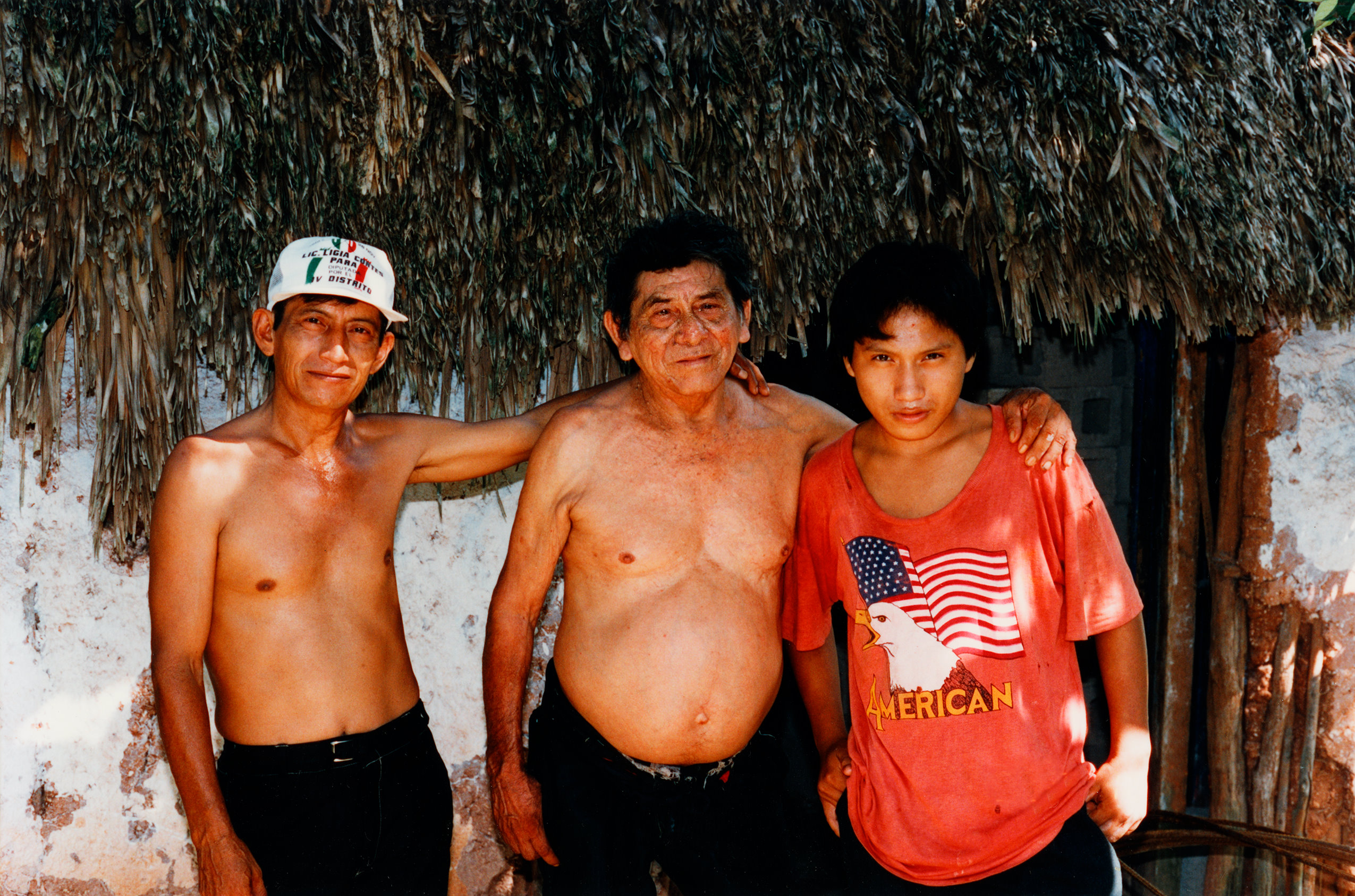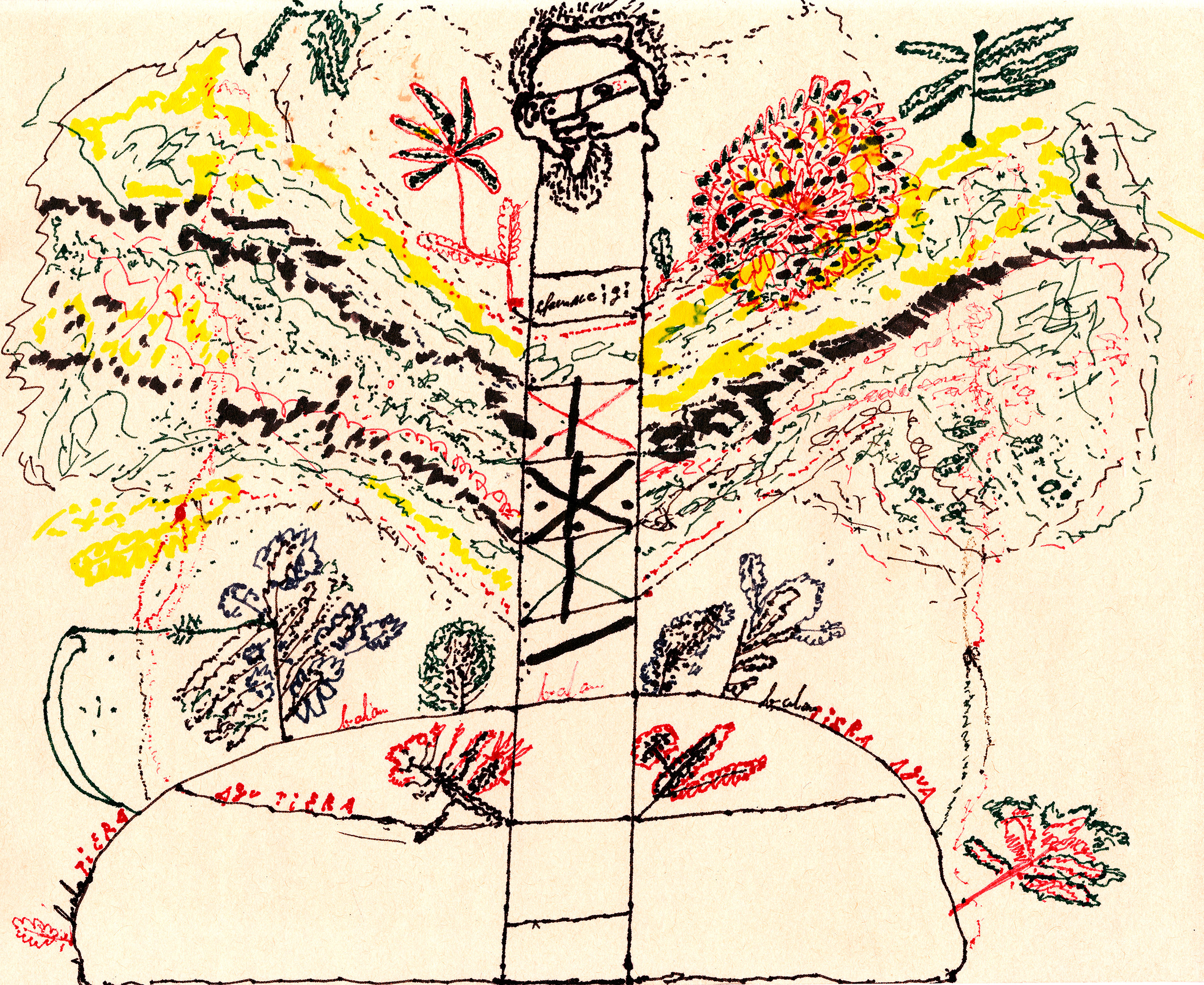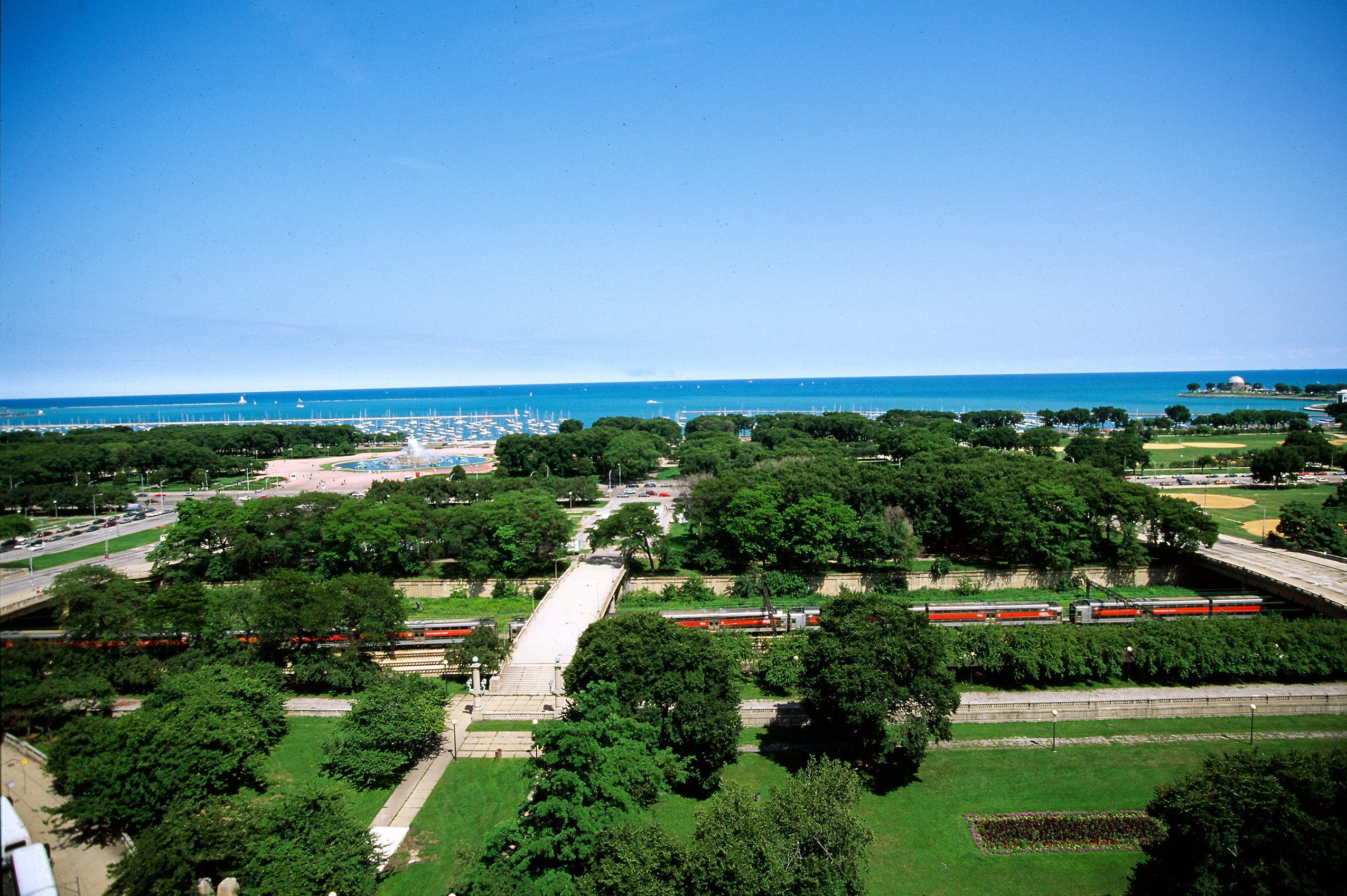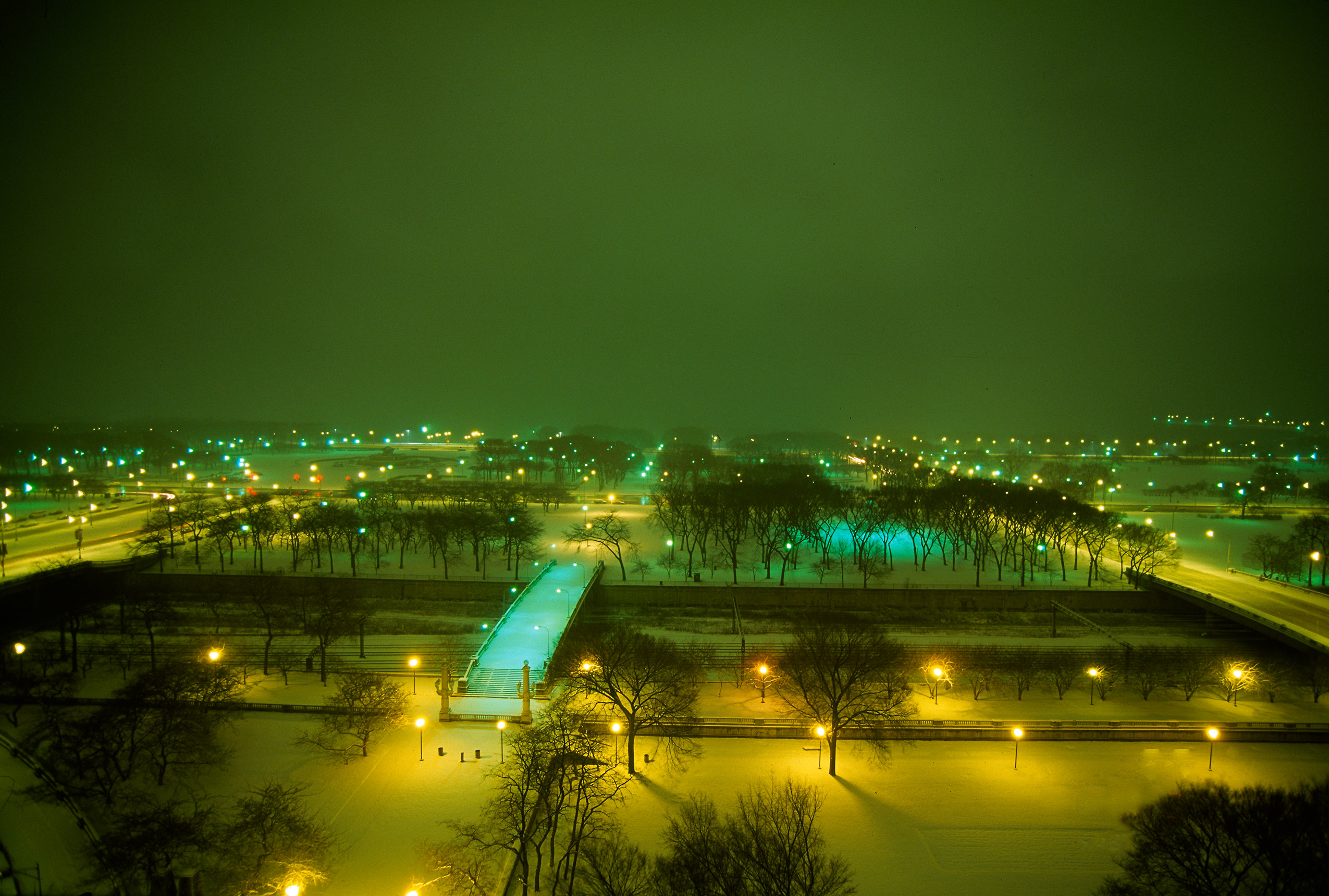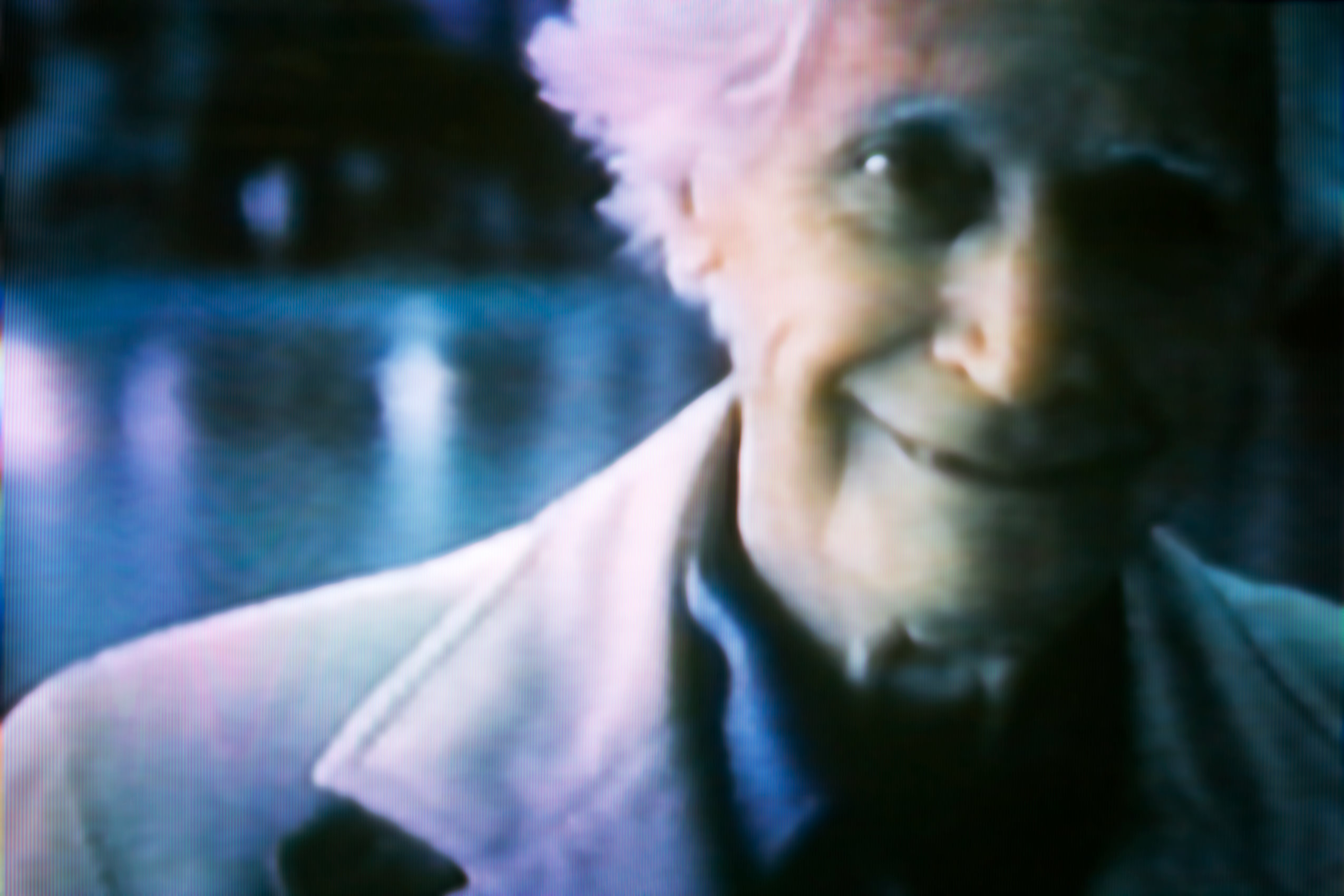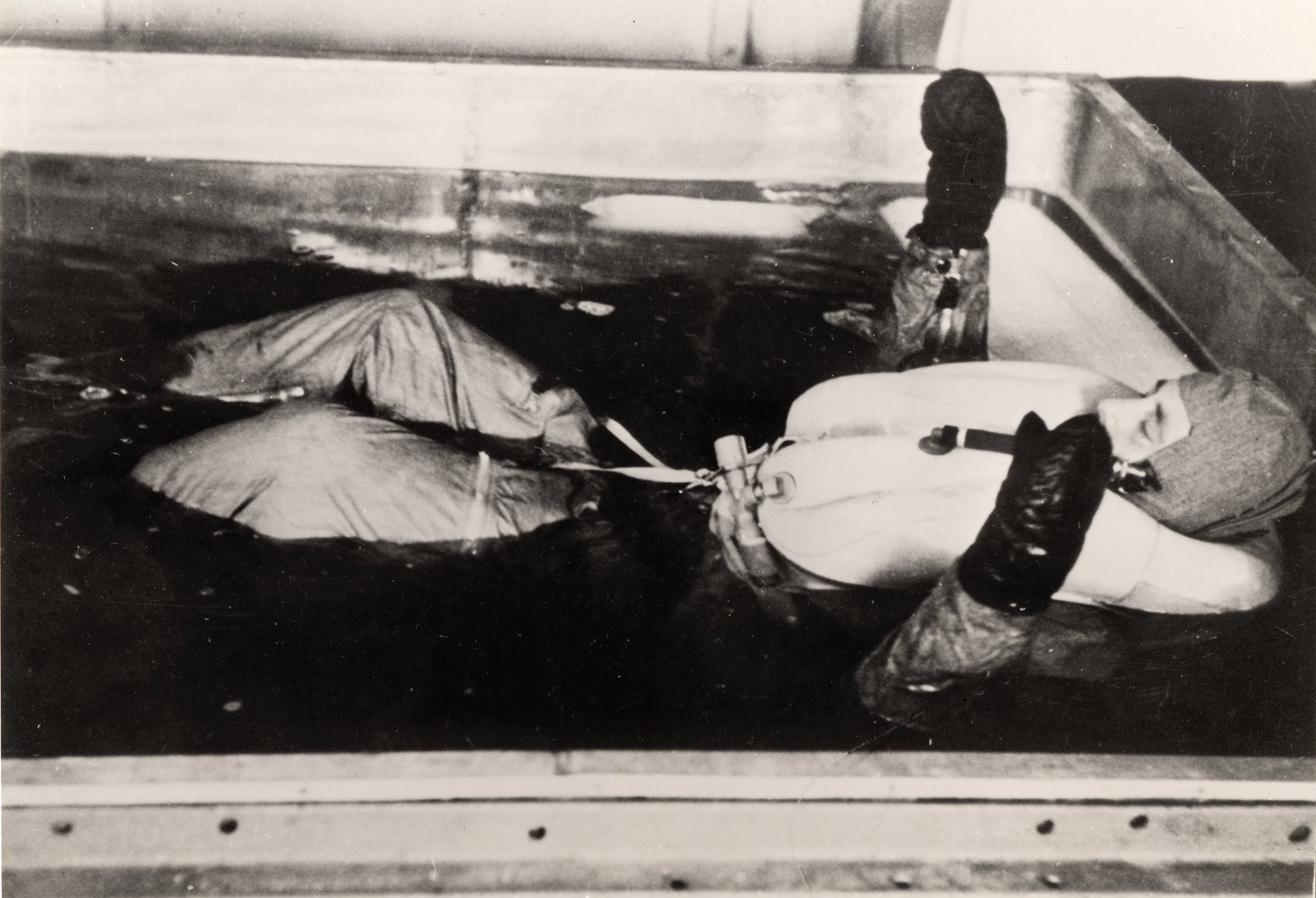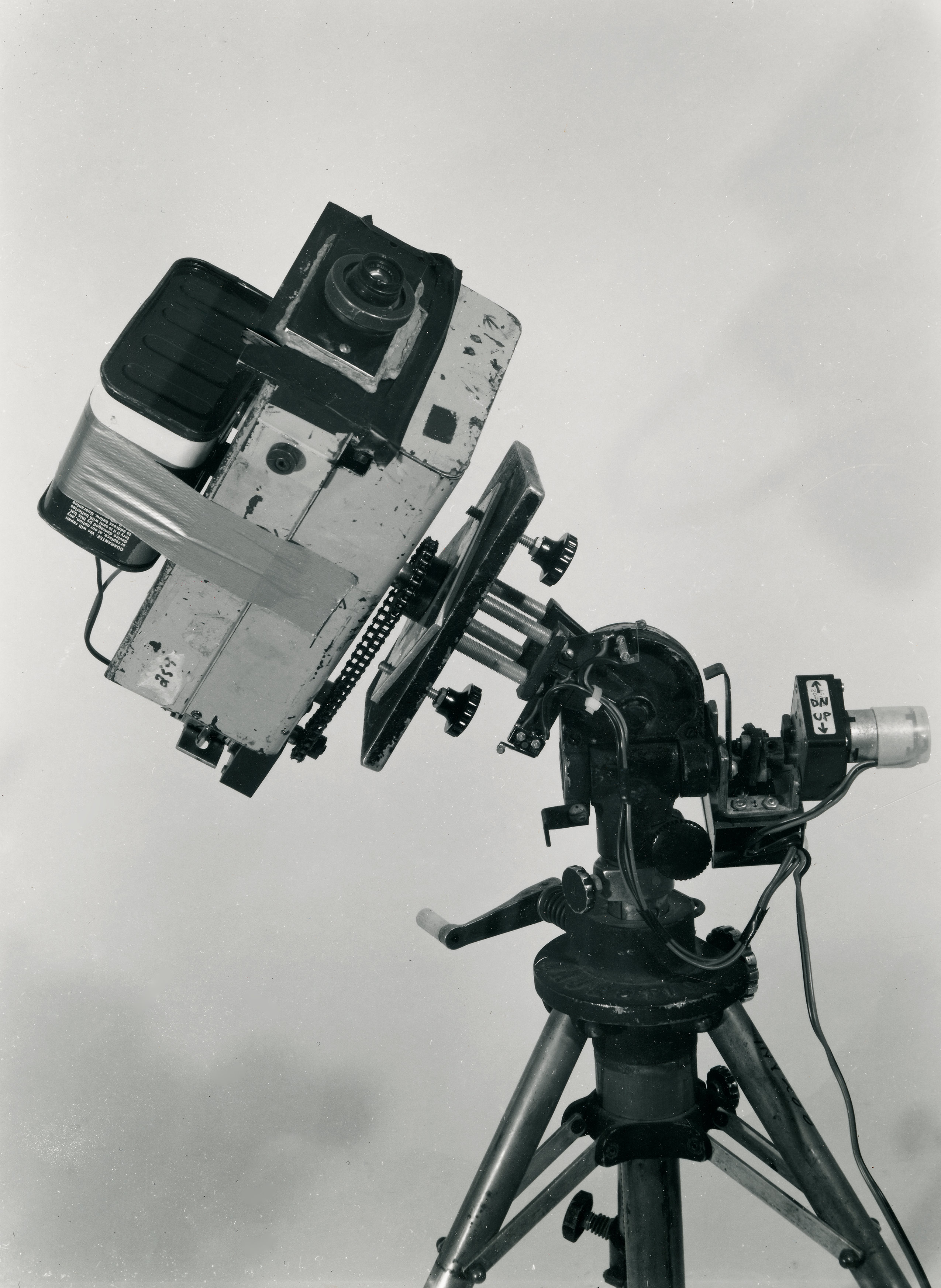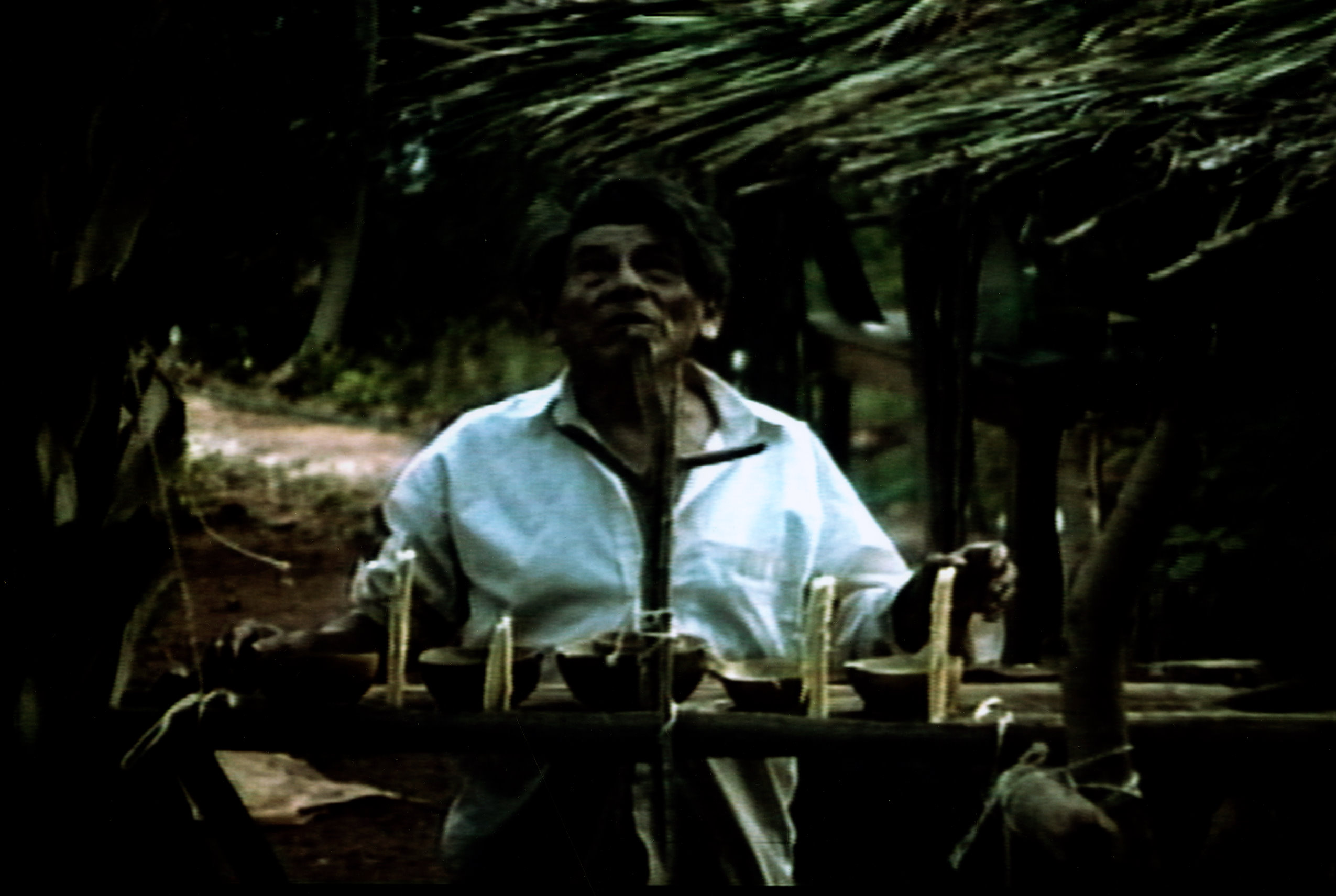The following appeared in the Chicago Reader on January 16, 2004. Over five years later, I developed some elements in this piece while writing a much longer account of Thompson’s work including an email exchange with him which appeared in the Fall 2009 issue of Film Quarterly. (See “A Handful of World”.)
I was more than gratified when Thompson told me, years later, that this review led him to go back on his decision to retire from filmmaking and make another film, which yielded Lowlands, a few years before his untimely death. — J.R.
Universal Hotel
**** (Masterpiece)
Directed and written by Peter Thompson.
El movimiento
*** (A must-see)
Directed by Peter Thompson
Written by William F. Hanks and Thompson.
Peter Thompson, who teaches photography at Columbia College and makes personal, autobiographical documentaries, is a major, neglected filmmaker. He’s made five films, and the latest, El Movimiento, his only feature, is having its world premiere at the Gene Siskel Film Center on January 16 and will be shown there again on January 19 — both times with the 1986 Universal Hotel, my favorite of Thompson’s shorts. (Thompson will lead a discussion at the Friday screening.)
Philosophically and aesthetically, Thompson’s films are as beautiful and provocative as any contemporary American independent work that comes to mind. But they’re also packed with secrets and resist being paraphrased or even decoded — one reason they aren’t better known. Another is that his first four films, all shorts, were put out on a single video by Facets in 1987 and have seldom been screened since.
The early shorts are about Thompson’s parents and about his research into the lives of two wartime prisoners in Dachau, which took him to Europe and Central America. El Movimiento concerns the life and work of a Mayan shaman and healer, Don Chabo, who was born around 1915 in the Yucatan, and his only apprentice, University of Chicago anthropologist William F. Hanks. Thompson also figures in El Movimiento as both the narrator and a part-time protagonist, but Don Chabo and Hanks periodically take over these functions, making Thompson’s role less clearly delineated than in the earlier films.
This is an obvious difference, but the shorts and the feature have many striking elements in common. All five are troubled and troubling meditations on history and epic efforts of retrieval, concerned simultaneously with the shape of entire lives and with fleeting experiences — a duality that makes them both elemental and elusive, weighty and light, concentrated and diffuse.
It’s also significant that dreams are often given as much attention as objective facts — and are even viewed as objective facts. In El Movimiento Thompson and Hanks recount their own dreams at separate junctures, and Don Chabo uses drawings and reenactments to convey the visions and experiences that led him to become a shaman in his mid-20s, after his family had died of starvation. All three characters seem to periodically exchange roles, adding to the confusion between objective and subjective realities. After Don Chabo burns candles, chants, and sprinkles water on plants, he says, “Cut,” and at that moment is clearly the director. Earlier he looks through Thompson’s camera while Hanks addresses him, and soon after, Hanks films and addresses Thompson. Much later we learn that Hanks’s role in healing Don Chabo when he was seriously ill led him to resume the apprenticeship he’d abandoned.
Thompson’s work since the 1981 Two Portraits has become more broadly conceived and more densely populated. The 28-minute Two Portraits — the first part of which describes his father, the second his mother — consists largely of elaborate reworkings of found materials that come across as highly objective and detached in certain ways and extremely personal and private in others. Universal Hotel (1986, 23 minutes) and Universal Citizen (1986, 23 minutes), another diptych, combine objective and subjective elements even more elaborately and ambiguously. In the first Thompson chronicles his research into experiments by Dr. Sigmund Rascher at Dachau in 1942, in which he nearly froze a Polish prisoner and then got a German prostitute to warm him up; Thompson uses photographs from archives in six countries and recounts a subjective dream set in what he calls the Universal Hotel. The second film is a multifaceted personal travelogue that brings us to a real Universal Hotel, in Guatemala, and to the same public square in Siena that appears at the beginning of Universal Hotel; at the center of the film are Thompson’s offscreen meetings with a Libyan Jew and former Dachau inmate who works as a smuggler in Guatemala and refuses to be photographed.
Extratextual considerations play an important role in all four of these films. The notes on the Facets video Films by Peter Thompson allude to the “father’s suicide,” though as far as I can tell, nothing in Two Portraits does. Thompson has described the main themes of Universal Hotel and Universal Citizen as “the emotional thawing of men by women, the struggle to disengage remembrance from historical anonymity, and nonrecoverable loss,” though nothing in Universal Hotel indicates that the “thawing” it’s concerned with is emotional and not simply physical. Thompson emerges clearly as a character in Universal Citizen, which alludes to his wife and their adopted Puerto Rican daughter in Chicago, but here too the things we aren’t told about the characters seem just as important as the bits of information we get; indeed, in spite of their confessional aspects, all five of Thompson’s films are dominated and even structured by these absences. We never discover the reason for his interest in filming the smuggler, nor do we learn why he’s fascinated with Rascher’s experiments, apart from the allusion to emotional thawing.
Furthermore, the subjectivity in these films is itself subjective. Writing a few years ago in the Reader about Universal Hotel, Fred Camper noted that Thompson accompanies the still photos of the German medical experiments “with a narration so mechanical that it implies no degree of emoting could capture SS-perpetrated horrors,” and it’s easy to see how he could conclude that. But I think Thompson’s uninflected offscreen voice reading his own texts in Universal Hotel and Universal Citizen, in the first part of Two Portraits, and in portions of El Movimiento evokes Robert Bresson, in that he’s suppressing overt emotional expression to make room for other kinds of emotional expressiveness, such as rhythm and the meaning of the words. When he was a young man Thompson toured Europe as an accomplished classical guitarist, and his concise writing and concentrated delivery have a power that’s highly musical and that’s affecting precisely because it isn’t embellished by anything resembling acting. I doubt it’s a coincidence that the least accessible of his films is the second part of Two Portraits, the only film in which his voice isn’t heard.
The first thing we’re told in El Movimiento, quoted from a 1562 chronicle, is that the name “Yucatan” — where practically all of this film was shot — derives from the inability of the Spanish explorers and Mayan merchants to understand each other’s language. When the Spaniards asked, “What is this place called?” the Mayans responded, “We do not understand your language,” the short version of which is “Yucatan.” As we hear this we see successive 360-degree pans around 360-degree still photographs of the Yucatan village where Don Chabo lives (the end of the last photo shows Thompson facing the camera), implying a slightly less skeptical view of the capacity of language, in this case film language, to communicate.
This simultaneous display of faith and lack of faith are characteristic of the film as a whole and make an interesting comparison with the dialectic implied by the beginning of Universal Hotel and the end of Universal Citizen, both of which use the same footage of a woman walking diagonally across a public square in Siena, away from the camera and out of the frame. Over the beginning of Universal Hotel Thompson says offscreen, “1981. I see everything from a distance from my window in the Universal Hotel,” and then we hear phone calls pertaining to his research in which he speaks in English and Italian, then in French, and finally in German and English; we don’t hear anything about what the woman’s doing or why. Over the end of Universal Citizen he explains that in 1982 he bet his wife that she couldn’t walk to the white fountain in the Siena square with her eyes shut. “‘Oh, that’s simple,’ she said, ‘It’s right in front of me,'” he continues, while we see the same woman retreating — and straying far from the fountain. (Whether this footage was shot in 1981 or 1982 is only one minor mystery among countless others.)
As the end of Universal Citizen and the beginning of El Movimiento make clear, Thompson’s films are based on metaphors that make clarity and obscurity opposite sides of the same coin. “We don’t have a path,” Hanks says, paraphrasing Don Chabo toward the end of El Movimiento. “Just a few brief clearings in the woods. The rest of the time we’re lost and looking for things that can’t be seen.” The title of the film is explained in a sequence in which Hanks is taking a shower and telling Thompson that Don Chabo accepted the premise that the overall movement of his work as a shaman and healer could be filmed even if the work itself couldn’t be. The use of the word movimiento reflects this fascination with simultaneous clarity and obscurity in that Spanish isn’t the native tongue of Hanks, Don Chabo, or Thompson; Hanks also says that he didn’t know any Spanish or Mayan when he first encountered Don Chabo during his anthropological research.
A sense of mediation, translation, and continual refocusing is apparent in this project from the outset. Hanks has to serve as an interpreter of Mayan for Thompson as well as for us, and Don Chabo’s selection of Hanks as his only apprentice implies a compatibility between practicing anthropology and practicing folk medicine that Hanks can’t accept. Ideally Thompson — who uses an innovative rotating overhead camera that implies a holistic vision — might serve as a mediator as well as chronicler of this troubled apprenticeship. But as the film periodically shows, the filmmaker isn’t any more capable of taking in everything than the teacher or his pupil; the difficulties in his own shifting relationship with Hanks are also taken up toward the end of the film.
What we see of Don Chabo’s medical practice is straightforward and fascinating. We watch him treat a sick baby with plants and prayers that are part Christian and part pagan, refuse to help a woman who wants him to cast a spell on another woman (explaining that he doesn’t do evil, he only cures people), advise an old man that there’s no medicine to cure his aches and pains, try to teach Hanks how to read crystals before concluding that it “isn’t the time yet for him to understand,” and perform an exorcism for a young woman whose mother claims she’s been kidnapped by Satan. Throughout these and other episodes he appears no more foreign, mythical, or out of the ordinary than Hanks or Thompson; if anything, he’s more lucid and transparent, perhaps because he appears to have less to hide. Thompson has pointedly made the pagan elements every bit as consequential as the Christian ones, deepening the impression that this is a mystery story without a solution, albeit full of illumination.

